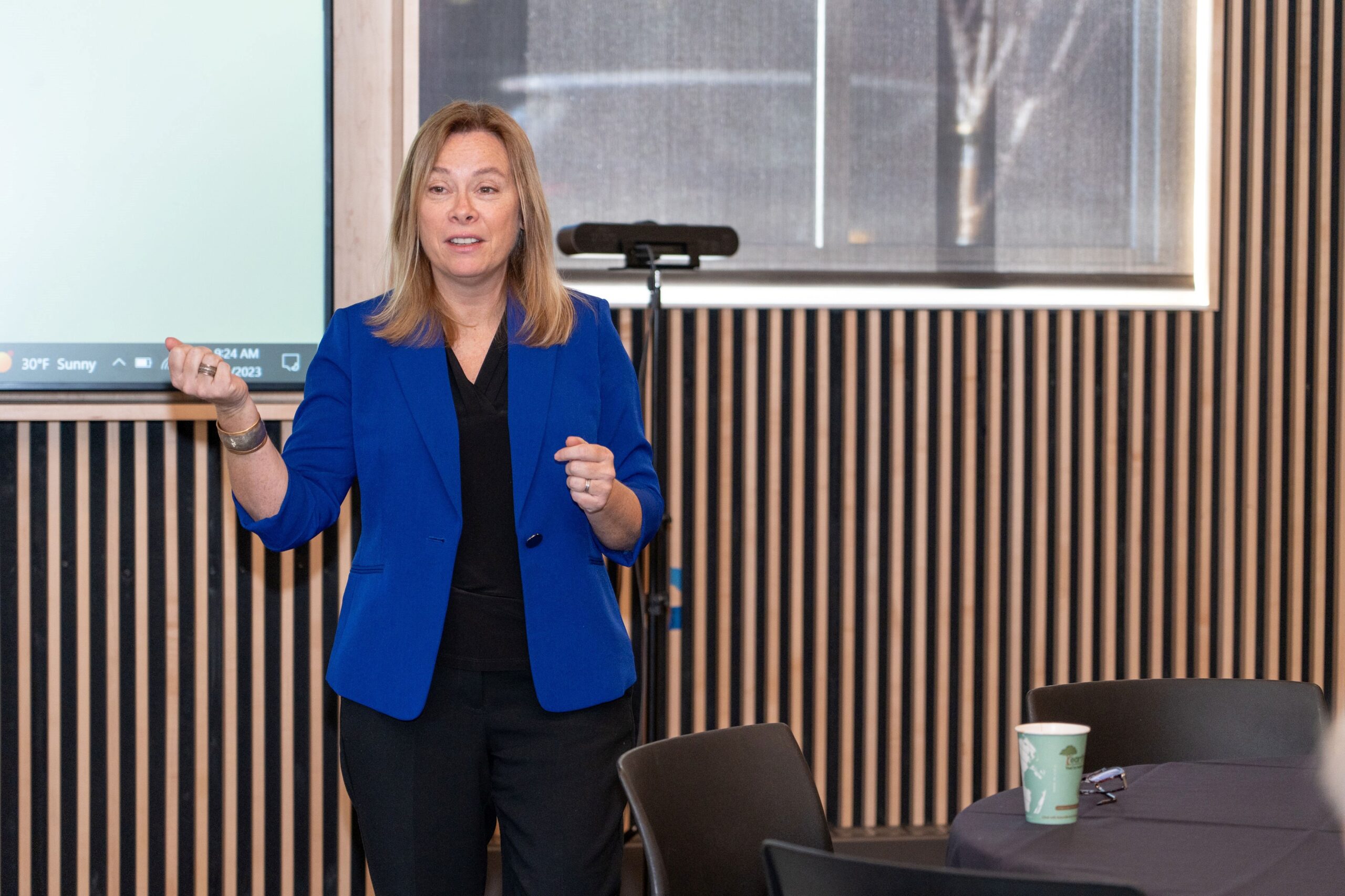By: Kate Willink, Vice Provost of Faculty Affairs
Dear Colleagues,
As we continue to move forward with workload equity implementation, with gratitude to the Workload Equity Committee, the DEAPs, and academic leaders, here are some final thoughts on why we should all do this work.
Provost Clark has made her commitment to Advancing Equity in Faculty Workload and Rewards clear, centering equitable faculty evaluation. This multi-year initiative includes extensive shared governance work as well as funded incentives for early adopter departments and programs—supporting us to do the hard but essential work to move toward greater equity on campus.
This is the third year we have hosted Dr. Kerry Ann O’Meara as part of the Provost Conference. Workload equity has been a focus of dean’s retreats and Provost Clark has brought O’Meara in to support deans, chairs, and directors in implementing workload equity initiatives for the last two years. Provost Clark is walking the talk and supporting us along the way. This makes me proud to be at DU and to be in the Provost’s Office.
Here are six things I admire about Dr. KerryAnn O’Meara in addition to her exceptional scholarly profile:
1) She challenges us to tinker toward utopia. O’Meara has taken on a complex, wicked problem that gets to the heart of faculty life. She offers the academy ways to address known, chronic pain points; and highlights ways to achieve small wins that make our day-to-day lives better. And who doesn’t want that?
2) She is an outstanding researcher. O’Meara has compiled and co-created decades of research that demonstrate why we need intentional, equity-minded approaches to workload as an essential part of equity and faculty thriving. If we consider ourselves research driven and we are not doing this work with and for each other, we need to ask ourselves, why not?
3) She is data driven. What we don’t know will not shed light on what is. O’Meara reminds us that without data, we will not know and appreciate what our colleagues are doing. Without data, we cannot build data-driven solutions to our collective challenges.
4) She is counter cultural, and her work invites us to be more authentic about the status quo. To be frank, most of us were all schooled in competitive individualism and individual negation for our personal advancement. For some of us, this has worked very well. But we know from research, specifically for underrepresented faculty, it has not.
Likewise, many of us don’t like systems where individuals negotiate. We feel they are not fair and transparent and that decreases trust and morale. These decisions and interactions accrete into department and program and college climate and culture. They become reasons people leave. O’Meara’s work invites our “better angels” to make the collective work for our collective benefit and for a more equitable academy where all faculty thrive.
5) She is a wayshower. As a scholar of education policy, and specifically school desegregation, I have studied something about massive resistance—deploying a range of tactics and strategies against the growing movement for civil rights. Well, when it comes to workload equity, there are many strategies and tactics for resisting workload equity efforts. O’Meara is showing us the way—providing a change model that actually works in higher ed, reminding us that slow and steady wins the race. O’Meara provides everyone with the free ACE report with actionable worksheets to get started.
6) Finally, her work pairs perfectly with relationship-rich education. I would argue that workload equity is a vital, relationship-rich practice. This is communitarian work—how we make sure we attend quarter-by-quarter, year-by-year, to be equitable in distributing workloads, becoming aware and appreciative of all the work our colleagues are doing, and attending to work not currently credited or evenly distributed.
KerryAnn O’Meara reminds us in her commitment to workload equity that you don’t build trust as colleagues by avoiding sensitive issues or sublimating conflict. Avoidance means doubling down on dysfunction and increasing inauthenticity. And faculty leave when what we say we value and what we do fail to align. We question meaning and purpose in our work. We become cynical. We find interactions and activities draining instead of vitalizing. We see our colleagues leave. And then we waste our life force in sisyphean hires and DEI hiring efforts. Talk about a good way to increase workloads and burnout!
So, when we think about faculty thriving and workload, we need to start counting the costs of not doing this work. Costs that we are habituated to, but that also make our workloads more unsustainable.
As faculty, we do this work with and for each other because it builds a relationship educational environment for us—one of care and appreciation for our collective work, meaning, and purpose, and a shared sense of responsibility—how we show us as colleagues with and for each other.
O’Meara’s work is research and data driven. It shows us the way. It helps us walk the talk in relation to equity. It makes all our vital work visible and valued. It is essential to avoiding burnout and toxic climates and cultures. And also, she reminds us that tinkering towards utopia and creating small wins in our work lives is possible and necessary for faculty thriving and student learning,
Thank you Dr. KerryAnn O’Meara for your work and for your sustained support of our work at DU.


